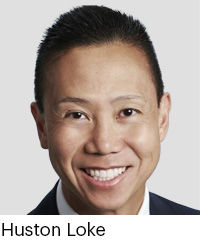
The Ontario consultation on licensing requirements for managing general agents (MGAs) ended on on April 30, 2025 – the same day that the Canadian Association of Independent Life Brokerage Agencies’ (CAILBA) annual conference opened in Montreal.
Initiated on Jan. 28, 2025 by the Financial Services Regulatory Authority of Ontario (FSRA), this consultation focused on proposed Rule 2025-001, Life and Health Insurance, Managing General Agents. With this rule, FSRA aims to strengthen the supervision of managing general agents. Among other things, it would require them to obtain a license.
To obtain a license under Rule 2025-001, the MGA must have a compliance officer and a compliance verification system that meets the requirements of the rule. He or she must carry liability insurance, as well as a surety bond or professional liability insurance.
Rule 2025-001 also stipulates that the applicant must have “a mailing address in Ontario that is not a post office box and that is suitable to permit service by registered mail”. At the time of writing, FSRA had not yet published any of the comments received as part of this consultation.
Comments soon to be analyzed
During a panel discussion on the next steps for the license, held at CAILBA's annual conference on May 1, Huston Loke, Executive Vice President of Market Conduct at FSRA, said the consultation had elicited several comments from both MGAs and other organizations. Loke added that FSRA will spend the next few weeks analyzing these comments.

Stephen Frank, President and CEO of the Canadian Life and Health Insurance Association (CLHIA) was also a panelist at the event. He explained that the CLHIA has numerous committees active on a wide range of industry-specific issues, including one devoted to distribution. “But, the key focus for us right now is the initiative of MGA licensing,” said Frank. “It’s one of those interesting times where industry is as interested as the regulator in getting this regulation updated…We want to get it done and behind us.”
Shortcomings at the start of the project
When we got in the field, we realized that there’s a (variation) between the level of compliance activity. - Huston Loke
The result of its research revealed to FSRA that an increasing proportion of products sold to individuals now pass through MGAs. “When we got in the field, we realized that there’s a (variation) between the level of compliance activity, documentation and practices,” Loke stated during the CAILBA panel.
“We have cases where agents are manufacturing customers,” he added. “They're filling up paperwork, putting those names as if they're real names. They are collecting some commissions on it and that’s obviously a huge problem.”
Loke also gave the example of misconduct whereby the advisor sells policies to real customers, but on the basis of false information with “projections that don't make any sense, assurances and guarantees that don't exist.” In such cases, he explains that the advisor earns a commission, but may have it charged back down the road, since the customer may abandon the policy. “That is a terrible experience for the consumer.”
He emphasized that accountability is not just about catching bad practices. A well functioning distribution system, Loke says, offers consumers more choice and potentially better access and pricing. “Some of them might be shopping and need someone to help them determine what is the product that better suits their needs. Most consumers are not experts about insurance products, and they need that advice, but it comes with a responsibility,” said Loke.
Clarity
The CLHIA’s Stephen Frank said he was as alarmed as FSRA about the misconduct reported by Huston Loke. He adds that both insurers and MGAs must work with regulators to eradicate such practices.
On the other hand, Frank insists on the need for clarity in the face of the new regulations surrounding MGA licenses. He repeated this several times during the panel event. Particularly when it comes to accountability. The first area he would like to see clarified: recognizing MGAs for what they are. “They are not an extension nor a creature of the insurers. They are business we contract with,” he sums up.
We’re not worried about the transition, but we’re worried about duplication. - Stephen Frank
Frank also wants to see everyone's responsibilities clarified, to avoid duplication. “There’s a lot of discussions on exactly where the executives draw the line and the need of getting it clear,” he says. “We’re not worried about the transition, but we’re worried about duplication.”

Panel moderator, Eric Wachtel, who is the National Chief Compliance Officer for IDC Worldsource Insurance Network, asked Stephen Frank what role insurers can play in helping to build more coordinated and transparent distribution network, while preserving the entrepreneurial spirit of the independent advisor channel?
Frank responded with what he described as the perfect target: “Moving to a clearer framework with clear accountabilities, a clear sense of the rules, and clear oversight.” That will go some way toward addressing the problems observed by FSRA, he said.
Frank added that such clarity is needed in a retail regulatory environment that today is “kind of spaghetti soup.”
He also expressed the hope that FSRA's work in this direction will spread across Canada, for the benefit of advisors. For now, FSRA's work could change the daily lives of 72,000 insurance agents in Ontario. Huston Loke revealed that this number of advisors is a record that the province reached at the end of March 2025.
No licensing in Quebec

Quebec has no plans to require an MGA license, according to Louise Gauthier, Senior Director, Distribution Policies at the Autorité des marchés financiers (AMF). Gauthier spoke at the CAILBA conference during a panel discussion that preceded the one attended by Loke and Frank. She explained that the Quebec regulator “doesn't see the need to go there…MGAs are already registered as firms in Quebec,” explained Gauthier.
However, she did underline that the AMF does see the need to specify and clarify the role and obligations of MGAs. She points out that the AMF has been working for some time on a project to provide a framework for the governance of firms. “We have had discussions with the industry over the past year.”
She is counting on Bill 92, An Act to amend various provisions mainly with respect to the financial sector, to give the regulator some teeth in governance matters. “Bill 92 will clarify our regulatory powers, enabling us to carry out a truly comprehensive regulatory consultation on the governance and management of firms.”
Among other things, the regulator will examine the difference between independent representatives and firms in the Quebec model, Gauthier adds.
On April 8, 2025, Quebec Finance Minister Eric Girard tabled Bill 92 in the National Assembly of Québec. Some stakeholders deplore the fact that they were not consulted prior to the tabling of this omnibus bill, which will amend several laws administered by the AMF, including the Act respecting the distribution of financial products and services, the Securities Act and the Insurers Act.
Bill 92 would also change the landscape of self-regulatory organizations (SROs) in Quebec's insurance sector. The bill would merge the Chambre de la sécurité financière and the Chambre de l'assurance de dommages into a single SRO, the Chambre de l'assurance.
In addition, the Chambre de la sécurité financière would be relieved of its responsibilities with regard to mutual fund representatives, which will be taken over by the Canadian Investment Regulatory Organization (CIRO). The AMF has already begun delegating some of its responsibilities to the CIRO.
Bill 92 will be debated during Committee on Public Finance hearings at Assemblée nationale du Québec, May 20.







